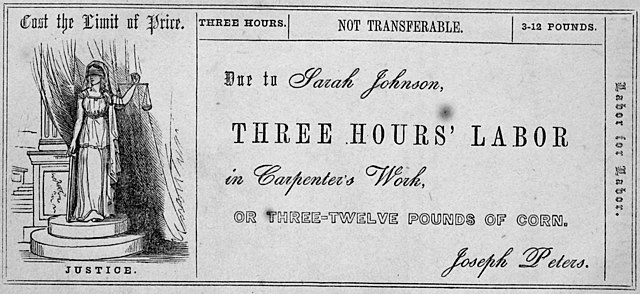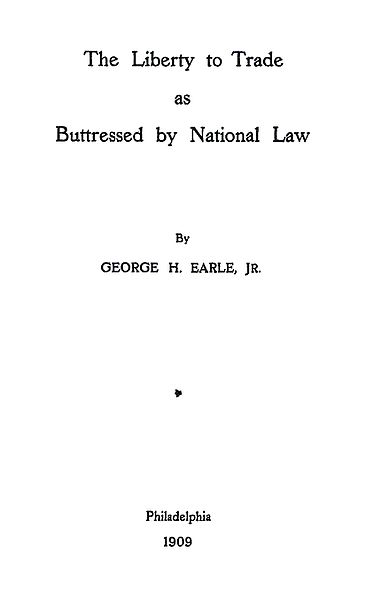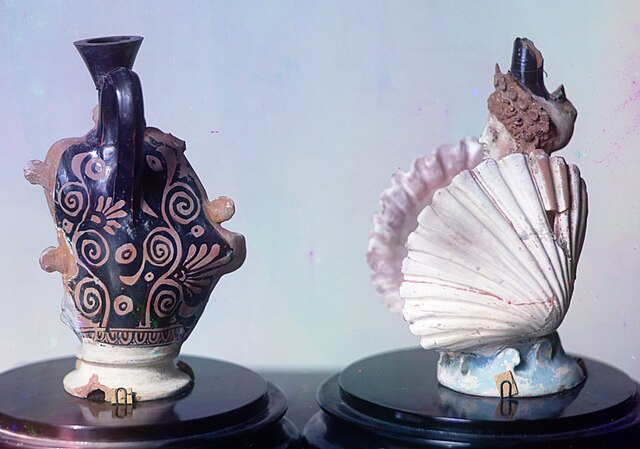In trade, barter is a system of exchange in which participants in a transaction directly exchange goods or services for other goods or services without using a medium of exchange, such as money. Economists usually distinguish barter from gift economies in many ways; barter, for example, features immediate reciprocal exchange, not one delayed in time. Barter usually takes place on a bilateral basis, but may be multilateral. In most developed countries, barter usually exists parallel to monetary systems only to a very limited extent. Market actors use barter as a replacement for money as the method of exchange in times of monetary crisis, such as when currency becomes unstable or simply unavailable for conducting commerce.
An 1874 newspaper illustration from Harper's Weekly showing a man engaging in barter by offering various farm produce in exchange for his yearly newspaper subscription.
Scandinavian and Russian traders bartering their wares. Olaus Magnus, 1555
'White traders bartering with the Indians' c. 1820
A 19th-century example of barter: A sample labour for labour note for the Cincinnati Time Store. Scanned from Equitable Commerce by Josiah Warren (1846)
Trade involves the transfer of goods and services from one person or entity to another, often in exchange for money. Economists refer to a system or network that allows trade as a market.
The San Juan de Dios Market in Guadalajara, Jalisco
The Liberty to Trade as Buttressed by National Law (1909) by George Howard Earle, Jr.
A busy market in Mile 12. Lagos - Nigeria
Ancient Etruscan "aryballoi" terracota vessels unearthed in the 1860s at Bolshaya Bliznitsa tumulus near Phanagoria, South Russia (formerly part of the Bosporan Kingdom of Cimmerian Bosporus, present-day Taman Peninsula); on exhibit at the Hermitage Museum in Saint Petersburg








